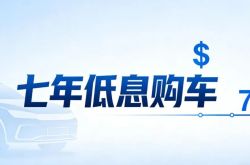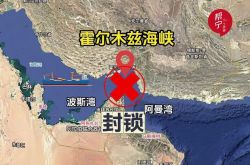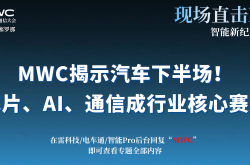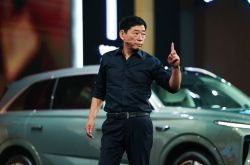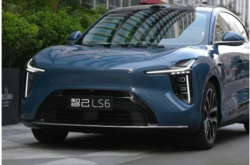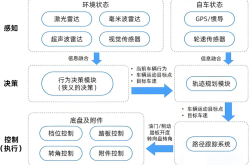Xinjiang Jinzheng Comes to the Rescue, Seeking to Resolve Guanghui Auto's"Face Value Delisting" Crisis
![]() 07/12 2024
07/12 2024
![]() 532
532
Blue Whale News, July 11 (Reporter Xu Xiaochun) When Guanghui Auto's closing price fell below 1 yuan for 15 consecutive trading days, its actual controller Sun Guangxin gave it a shot in the arm: Sun Guangxin plans to transfer control to the Jinzheng Group, controlled by Xinjiang entrepreneur Liang Jun. On July 11, Guanghui Auto responded with a trading halt, and the share price returned to 0.87 yuan per share at the close. In the next four trading days, Guanghui Auto's share price could rise above the 1 yuan warning line with just two trading halts.
Xinjiang Entrepreneur Comes to the Rescue? Guanghui Auto's Share Price Hits the Limit Up
On June 20, Guanghui Auto closed at 0.98 yuan per share, marking the first time its closing price fell below the 1 yuan warning line. Since then, the company's closing price has continued to be below 1 yuan per share for 15 consecutive trading days, putting Guanghui Auto in a "face value delisting" crisis.
On the evening of July 10, Guanghui Auto announced that its controlling shareholder, Xinjiang Guanghui Industrial Investment (Group) Co., Ltd. (hereinafter referred to as "Guanghui Group"), was planning to change its control, with the counterparty being Xinjiang Jinzheng New Materials Technology Co., Ltd. (hereinafter referred to as "Jinzheng Technology").
Shortly after the opening on July 11, Guanghui Auto's share price hit the limit up and finally closed at 0.87 yuan per share, with a market value of approximately 7.2 billion yuan.
Currently, Guanghui Group holds a 32.46% stake in Guanghui Auto, and Sun Guangxin holds a 50.06% stake in Guanghui Group, indirectly controlling Guanghui Auto and serving as the actual controller of the listed company. In 2023, Sun Guangxin's personal wealth was estimated to be around 31.5 billion yuan, making him known as the "richest man in Xinjiang." In addition to Guanghui Auto, Sun Guangxin also controls four other listed companies: Guanghui Energy, Guanghui Logistics, Guanghui Baoxin, and Alloy Investment.
In his early years, Sun Guangxin had a military career. At around 18 years old, he enrolled in the Anhui Bengbu Automobile Management College of the People's Liberation Army and later went on to further his studies at the Xi'an Army Academy. The early Guanghui Group was jointly founded by Sun Guangxin and his comrades-in-arms. Now that Guanghui Auto is facing the critical juncture of delisting, it is being taken over by a fellow military entrepreneur.
The controlling shareholder behind Jinzheng Technology, which is acquiring the equity, is Xinjiang Jinzheng Industrial Group Co., Ltd. (hereinafter referred to as "Jinzheng Group"). According to its official website, Jinzheng Group was founded in 1993 and incorporated in 2007. By 2021, its asset size had exceeded 26 billion yuan, and its annual operating revenue had exceeded 30 billion yuan. The company's current business mainly includes four major segments: energy and chemicals, engineering construction, technology and networks, and trade and logistics. Liang Jun directly holds a 37.78% stake in Jinzheng Group, serving as its controlling shareholder and actual controller.
Similar to Sun Guangxin, Liang Jun also has a military background. Born in Yulin, Shaanxi, Liang Jun enlisted in the army and was stationed in Xinjiang in 1989. After his discharge in 1996, Liang Jun saw the potential in Xinjiang's rich coal resources and ventured into the energy sector. Currently, Jinzheng Group, under his leadership, holds several mining rights development projects across Xinjiang. In Northern Xinjiang's Changji Prefecture, the company owns a high-quality thermal coal mine with an annual production capacity of 2 million tons and another mine with a total capacity of 8 million tons. In Southern Xinjiang, in the regions of Kashgar and Kizilsu, the group holds 14 mining rights.
Energy and chemical engineering, along with construction, are the two primary business areas of Jinzheng Group. Since 2018, leveraging the opportunities presented by the reform of state-owned enterprises and assets within the Xinjiang Production and Construction Corps, Jinzheng Group has continued to restructure and acquire companies such as Beitashan Pasture Coal Mine, Lvxian Construction Group, and Kunlun Guarantee. This expansion has resulted in the formation of four main business sectors: energy, construction, finance, and supply chain.
Jinzheng Technology, the entity involved in the current equity transfer, belongs to the technology network sector of Jinzheng Group. Jinzheng Technology primarily focuses on facilitating the digital transformation of enterprises. Along with its associated company, Zhongjun Technology, it has developed and operates several comprehensive business platforms, including "Business Helper" for integrated operations, "Enterprise Management Helper" for digital enterprise management transformation, "Enterprise Link" for platform-based enterprise services, and industrial network platforms such as "Business Industry Chain," "Business Work Team," and "Business Freight."
Currently, the change of control over Guanghui Auto is still in the negotiation phase. The two parties have not yet signed any relevant equity transfer or cooperation framework agreements, and the final agreement remains uncertain. However, Jinzheng Group has committed that Jinzheng Technology will pay a deposit of 100 million yuan to a designated account of Guanghui Group by July 20.
As of June 29, 70.55% of Guanghui Auto shares held by Guanghui Group are pledged. If the equity transfer involves the currently pledged or frozen shares, it will be necessary to complete the procedures for lifting the pledges or freezes, or obtain written consent from the rights holders.
China's Largest Auto Dealership Group with Annual Revenue Near 140 Billion Yuan
In the process of mergers and acquisitions, revenue often comes with significant risks. For example, Guanghui Auto's early aggressive acquisitions boosted its revenue scale but also left a considerable debt burden.
Founded in 2006, Guanghui Auto has expanded through acquisitions, purchasing auto dealership companies across various provinces and cities in China. Today, Guanghui Auto has become the country's top passenger car dealership service group and the largest entity for used car sales and transaction agency services among dealers.
In 2015, Guanghui Auto went public on the A-share market by merging with Merro Pharmaceutical, becoming the second listed company in Sun Guangxin's capital empire.
At that time, Merro Pharmaceutical and other shareholders, including Guanghui Group, underwent an asset swap. Additionally, the company issued shares to raise 6 billion yuan in supporting funds, which were used not only for acquisitions but also to develop passenger car financing and leasing business. Less than six months after going public, Guanghui Auto planned an 8 billion yuan private placement to fund automotive financing and leasing projects and to repay interest-bearing debts.
The following year, Sun Guangxin's capital empire continued to expand. Guangxin Auto acquired Baoxin Auto, the world's largest BMW dealer, eventually forming what is now Guanghui Baoxin. During this period, Guanghui Auto entered an intensive acquisition phase.
In February 2016, Guanghui Auto acquired Dalian Investment Co., Ltd. of Zunrong Yifang Group for 1.76 billion yuan. The target company mainly held 18 4S shops in the Northeast region. In August of the same year, Guanghui Auto spent 1.007 billion yuan to acquire Pengfeng Auto, increasing its network coverage in Guangdong Province and expanding its business to Hunan Province.
In February 2018, Guanghui Auto acquired a 23.68% stake in Shanghai Aika for 686 million yuan. Shanghai Aika indirectly controls Aika Auto Network, which is China's earliest social automotive network interaction media and a well-known vertical automotive portal site.
In May of the same year, Guanghui Auto acquired five companies under the Pangda Group for 1.25 billion yuan, increasing its network coverage in the North China region. In the initial years after going public, Guanghui Auto continuously expanded its network coverage in the eastern coastal areas, Zhejiang Province, and other regions through acquisitions. Later, it also partnered with BAIC Group to establish an industrial fund focusing on the automotive aftermarket and other upstream and downstream enterprises in the industry chain.
Following a series of acquisitions, Guanghui Auto became the largest auto dealership group in China. Guanghui Auto's revenue scale grew from 93.7 billion yuan in 2015 to a peak of 170.4 billion yuan in 2019, falling back to 138 billion yuan in 2023. Meanwhile, Guanghui Auto's net profit reached a peak of 3.884 billion yuan in 2017 but then declined, shrinking to 392 million yuan by 2023.
This year, as a traditional auto dealership once left behind by the rise of new energy vehicles, Guanghui Auto is actively transitioning to build a network for new energy vehicles. As of the end of June, the company had successfully applied for authorization for 70 new energy stores, which are either under construction or have been completed and are operational.

